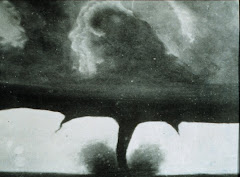Erika M. Nelson
One of Innumerable Antigones:
Burial Rites / Rights and Belonging in Dragica Rajčić’s “OnLoveSeas”
The issue of burial rights takes center stage in Dragica Rajčić’s play “OnLoveSeas” (Aufliebeseen, 2009), as the main character, the dead foreign guest worker Mena, a modern Antigone of sorts, waits patiently in the “waiting room of eternity” for official notice of whether she can be buried in her adopted homeland of Switzerland. Her quest to find a final resting place, portrayed as a restless, extended experience of bardo, unnerves the audience, much as the classical Antigone’s “living death” of being sentenced to die enclosed in a tomb as a punishment for defying the king’s authority and insisting that her brother’s death be performed according the proper burial rites, has haunted the stage since classical antiquity.
Unlike the figure of Greek tragedy, however, renowned for her fierce defiance and noble courage in life, Rajčić’s Mena appears far less heroic: she is a simple woman in her forties, described as a consciously conscientious rule-follower who recycles everything and meticulously records the destruction of her homeland in notebooks. Having fled the prevailing war in her country in search of asylum, she comes to Switzerland
To clarify the situation, it is not that she cannot be buried in Switzerland Switzerland
In Mena’s case, bureaucratic oversight and communication challenges betweenSwitzerland
In Mena’s case, bureaucratic oversight and communication challenges between
Express letters are faxed so that the woman could be buried as quickly as possible in Janjevo, her hometown. That is how it stands in the official papers but the civil servant wrote Vanevo and the faxed letter gets lost halfway on account of the war.
The manager of the refugee center that housed Mena composes a letter meant to resolve the situation at hand. The letter, however, does little but give insight into the difficulties of dealing with Swiss German bureaucracy. In long-winded circumlocution, the manager indicates that Mena “cannot linger not eternally on the grounds and at the costs of the community.” He recognizes that this case exemplifies “a particular instance of an extreme case of an exceptional situation” might fall under the “conditions of our contractual obligations for the accommodation of such temporarily needy war refugees.” Appealing to “the humanitarian spirit, with which we should attempt to accommodate the woman according to her customs,” he suggests seeking permission from the municipal council to possibly bury her in the local cemetery, understanding however that “such investigations require a certain length of time according to the customs of the country” and the council might be able “to address it at the latest in the next specially scheduled session, in order to give final approval on the decision of whether and how long the remains of this woman stay with us.”
The process however is thwarted once again—this time due to a computer error. As the manager is about to send the document via email, he hits the “enter” key and the computer screen goes blank. The letter is permanently lost. Though he intends to address this issue with his bosses, he hesitates addressing this issue once he realizes that it might cost him his job. Increasingly, the community and its representatives appear to have little interest and only bureaucratic headaches in burying its immigrant population. The bureaucratic responses result in an endless cycle of never-ending paper-pushing and pondering.
Mena understands that she cannot stay forever lifeless on the floor of the exile home at the expense of the municipality. Mena’s restless search for a final geographic resting place to call ‘home’ inadvertently becomes enmeshed in the web of larger questions of belonging and acknowledged presence, specifically in regards to those marginalized.
At the heart of the classical Antigone story is the question of how a proper city-state should be ruled according to differing interpretations, allegiances, and applications of justice, dike, and laws, nomos. Sophocles’s Antigone addresses as few other texts can the depths of human suffering to destructive forces of nationalistic fervor, terror, blind greed, and misuse of power, while ennobling the virtues of altruistic humanity and responsibility for another. Written in the fifth century at a time of imperialist attacks on Samos Island
In Sophocles’s version, the new Theban king Creon fails miserably, learning wisdom only after great suffering and the loss of his son Haemon. In a dramatic appeal before his death, Haemon, who is also Antigone’s betrothed, attempts in vain to dissuade his father, King Creon, from condemning his bride to the “cruelest” death for her honorable actions. Arguing on the grounds of social conscience, Haemon warns: “But I hear whispers spoken in the dark/ On every side I hear voices of pity/ For this poor girl.” Haemon’s attempt to change his father’s heart and thwart off perceived and unwanted gossip from citizens who disapprove of the cold-hearted, punitary actions against Antigone end in vain.
Similarly, Rajčić’s version appeals to a sense of common decency and humanity, as the actions lead to what Rajčić describes as “a chain of no-longer-get-out” situations. As George Steiner suggests, the “linear logic [of the play] is carried along by the idea, not the person.”[1] The “idea” revolves around the question of justice, dike, and it application in law, nomos. The classical conflict between King Creon and Antigone, and the Swiss bureaucracy and Mena, results from differing interpretations of allegiance to the law. In the Classical version, the state, represented by King Creon argues that traitors, even if royal by blood, should not be given the same sacred burial rites as heroes. Rajčić’s play calls into question whether a similarly arbitrary use of logic prevails in regards to Switzerland
Rajčić, like the classical Antigone, appeals to nomos, understood here as a concept deeply rooted in religious concepts of laws, customs, and principles governing human nature and humane action. Religious argument, however, is noticeably absent in Rajčić’s work. She does not introduce Mena as a Muslim or a Christian. For her, this is not the central issue in the piece. Nevertheless, at the time of the play’s premiere, precisely this issue was hotly debated in many Swiss municipalities, where Muslim citizens requested a change in burial accommodations in order to bury their dead according to Muslim traditions.[2]
For Rajčić, the personal is political, and Rajčić’s re-imagined Antigone emerges as one of innumerable Antigones for modern times, immigrant style, who reminds us, as George Steiner suggests that:
Whenever, wherever, in the Western legacy, we have found ourselves engaged in the confrontation of justice and of law, of the aura of the dead and of the claims of the living, whenever, wherever, the hungry dreams of the young have collided with “realism” of the ageing, we have found ourselves turning to words, images, sinews of argument, synecdoches, tropes, metaphors, out of the grammar of Antigone and of Creon. Indwelling in our semantics, in the fundamental grammar of our perceptions and enunciations, the Antigone-and-Creon syntax and the myth in which they are manifest are “specific universals” transformative across the ages.[3] (138)
These ‘specific universals’ honor our sense of common humanity and are not to be obliterated or nullified by authorial indifference or short-sightedness. Rajčić’s play echoes Antigone’s insistent stance that her brother’s life, like Mena’s and any one else’s, though void of any particular historical significance, is nevertheless not insignificant. Even in the silence of her death, through the very association with the Antigone material, Mena gives “vital shape to our sense of self and of the world” (Steiner Preface).[4]
Rajčić’s play “OnLoveSeas” premiered in St. Gallen’s Stadttheater in 2009, under Ralf Grunwald’s direction and with Ephgenia Hodkevitch’s set design. The piece, commissioned by the theater’s director Peter Schwieger, served as a representative piece of Switzerland Switzerland
Aesthetically Rajčić’s play works against this political backdrop, chronicling human experiences of emigration and exile, expertly navigating the terrain in the wake of loss and displacement. Hodkevitch’s set design invokes the image of an empty eye, with a ladder –like a splinter—stuck in its center. It is an internalized landscape of reverie, memory, and wandering consciousness that mediates time and space, willfully crossing over the boundaries of life and death. The wasteland landscape of the stage set also includes four “bombed out” nutshells that serve to encapsulate Mena’s life in three characteristic phases of childhood, adolescence, and young adulthood, with the forth shell remaining untrodden and thus unknown.
Imagined as encasings “recently broken by an invisible hand,” the nutshells provide shelter in which three actresses of various ages act out the conglomerations of memories of Mena’s life. A lonely disembodied male voice is heard from off stage, speaking on behalf of the civil servant as a voice of authority that announces each next official step in Mena’s burial process. Mena’s family exists only in recollected memories from the past, as lingering presences distantly involved in and displaced by the war raging on her in homeland, Mena remains an isolated, seemingly unassuming figure with little prospect of ever finding peace. As experiences and words ramble incessantly throughout the piece as a never-ending cascade of unstoppable insights, Mena is tossed on the seas of love and indifference. Ultimately, Rajčić’s piece appears as a lugubrious parting without end, as the actresses assemble, disassemble, and return to the same or similar constellations over and over again. The piece’s complexity disorients commonly-held perceptions of time and location, while reorienting the public to immigrant experiences of exile’s alienation, disorientation, and miscommunication.
“I am extinguished,” Mena states, before questioning “how can you say you are extinguished to the already thousands of times you’ve been extinguished and lived?” Mena’s spirit seems destined to wander in between transitional spaces of memory and recollection, uncertainty and loss. The poignant breaks and ruptures in Rajčić’s portrayal of such experiences expose the successes and failures of Switzerland
Notes:
1. G.H. Gellie, Sophocles: AReading Melbourne : Melbourne University
2. The established Swiss law of secularization and keeping religious agendas private, considered progressive in late 19'“ century as it aimed at establishing religious freedom between the Catholics and Protestants, has become the source of much debate at the end of 20" and the beginning of the 21st century, as Switzerland’s “new” religious diversity, in particular the adherents of the Muslim faith, has requested separate burial grounds in order to follow traditional burial customs. Currently an estimated 90%-92% of the Muslim population inSwitzerland Switzerland Today,” Journal of the Anthropological Society of Oxford Switzerland ,” In Re-thinking Non-Discrimination and Minority Rights, ed. M. Scheinin and R. Accommodating Religious Diversity in Switzerland Turku : Institute for Human Rights, Abo Akademi University , and Deutsches Institut für Menschenrechte , Berlin
3. George Steiner, Antigones.Oxford : Oxford University
4. As Walter Benjamin suggests in his theory of translation as survival, the afterlife of this text might have vanished from its original context, yet nonetheless the work deeply influences the message at hand. (Walter Benjamin, “The Task of the Translator”, in Theories of Translation: An Anthology of Essays from Dryden to Derrida, ed. Rainer Schulte and John Biguenet, Chicago: University of Chicago Press, 1992, 71-82.)
5. Tobias Hoffmann, Theater der Zeit. Vol. 2000, 09; 58-59.
1. G.H. Gellie, Sophocles: A
2. The established Swiss law of secularization and keeping religious agendas private, considered progressive in late 19'“ century as it aimed at establishing religious freedom between the Catholics and Protestants, has become the source of much debate at the end of 20" and the beginning of the 21st century, as Switzerland’s “new” religious diversity, in particular the adherents of the Muslim faith, has requested separate burial grounds in order to follow traditional burial customs. Currently an estimated 90%-92% of the Muslim population in
3. George Steiner, Antigones.
4. As Walter Benjamin suggests in his theory of translation as survival, the afterlife of this text might have vanished from its original context, yet nonetheless the work deeply influences the message at hand. (Walter Benjamin, “The Task of the Translator”, in Theories of Translation: An Anthology of Essays from Dryden to Derrida, ed. Rainer Schulte and John Biguenet, Chicago: University of Chicago Press, 1992, 71-82.)
5. Tobias Hoffmann, Theater der Zeit. Vol. 2000, 09; 58-59.
_____
Dr. Erika M. Nelson is an Assistant Professor at Union College University of Texas at Austin
_____
_____
RECONFIGURATIONS: A Journal for Poetics & Poetry / Literature & Culture, http://reconfigurations.blogspot.com/, ISSN: 1938-3592, Volume 5 (2011): Disappearance











No comments:
Post a Comment